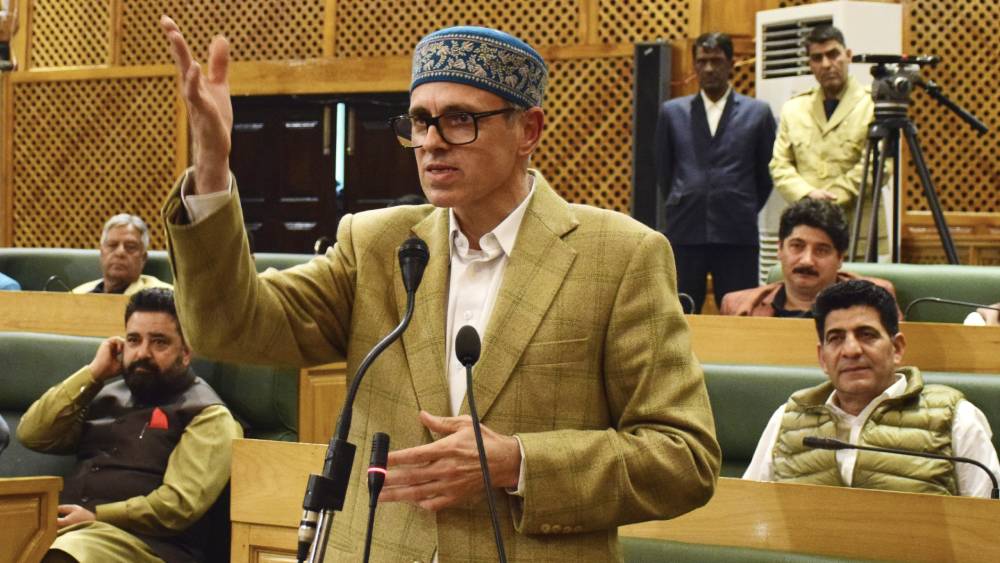 |
|
Omar Abdullah, Chief Minister of Jammu and Kashmir, recently sparked a debate regarding the proposed train swapping at Katra Railway Station. Initially, he suggested that prioritizing passenger safety might necessitate this measure, even if it raised concerns among stakeholders. His rationale hinged on the paramount importance of security in the region, emphasizing that any measure to prevent threats should be considered. This initial stance was relayed to reporters and reflected a cautious approach, acknowledging the need for a solution that prioritized security without hindering the functionality and purpose of the railway line. He stated that the ultimate decision rested with railway authorities, highlighting the desire for a solution considerate of the public's needs. This initial position, however, highlighted the tension between security concerns and the practical implications of such a measure. The substantial financial investment in the railway project is significant, and the need to balance security with the practicality and effectiveness of the investment remains a key challenge. Any disruption, such as forcing passengers to change trains, could undermine the overall purpose of the project and potentially lead to public dissatisfaction.
Subsequently, Abdullah clarified his position via a social media post, expressing his reservations about mandatory train swapping. He emphasized that such a measure would negate the railway line's intended purpose and render the substantial investment of thousands of crores of rupees pointless. This apparent shift in stance signals a recognition of the practical challenges and potential negative consequences of such a security measure. The initial prioritization of safety, therefore, seems to have been tempered by a more pragmatic assessment of the financial and logistical implications of train swapping. His later statement suggests a preference for alternative security measures that are less disruptive to the daily operation and accessibility of the railway line. This nuanced perspective demonstrates the complex considerations involved in balancing public safety and infrastructural investment in a region with ongoing security challenges. The question of the most effective security measures while minimizing disruption to passenger comfort and service efficiency remains a crucial point of consideration for the railway authorities and the government.
Beyond the Katra train issue, Abdullah addressed plans for developing Kashmir's tourism sector, particularly in Gulmarg. He acknowledged the importance of improving infrastructure to attract international tourists and conferences. The development of a convention centre in Gulmarg was highlighted as a key element of this plan, aimed at positioning Gulmarg as a premier international destination for events. The initiative also entails upgrading existing ski slopes and infrastructure to meet international standards. This vision extends beyond Gulmarg to include other locations with untapped skiing potential, such as Sonamarg and Dodpathri. These plans represent a significant investment in enhancing Kashmir's tourism infrastructure and diversifying the range of tourist experiences available in the region. Beyond attracting international events, this infrastructure development is projected to benefit local businesses and communities by increasing employment opportunities and attracting new investment. The overall initiative aims to elevate Kashmir's profile as a leading destination for both domestic and international tourists, capitalizing on its natural beauty and developing sustainable infrastructure that supports its growth.
Furthermore, the imminent opening of the long-awaited Z-Morh Tunnel was highlighted as a significant development in improving connectivity within the region. The tunnel is expected to open new avenues for residents near Sonamarg and significantly simplify travel along the Srinagar-Leh National Highway. The Chief Minister expressed optimism regarding the positive impact of the tunnel, suggesting it will boost regional economic activity and tourism. This project underscores the government’s commitment to infrastructure development, a key pillar in its overall strategy to improve the region's connectivity and economy. The planned inauguration by Prime Minister Narendra Modi further emphasizes the significance of this project on both national and regional levels. The completion of the Zojila Tunnel in the coming years is also anticipated to enhance connectivity even further, strengthening regional integration and reducing travel times. The emphasis on improved infrastructure reflects a broader strategy to develop Kashmir's economy and integrate it more effectively within the national context.
In conclusion, Omar Abdullah's statements illustrate a multifaceted approach to addressing the diverse challenges and opportunities facing Jammu and Kashmir. The debate over Katra train swapping highlights the complexity of balancing security needs with practical considerations, while the focus on tourism development showcases an attempt to revitalize the region's economy and create new opportunities for its people. The upcoming inauguration of the Z-Morh Tunnel and subsequent developments, such as the Zojila Tunnel, serve as tangible demonstrations of a long-term commitment to infrastructural improvement, a commitment aimed at improving connectivity, enhancing the region's tourism sector, and fostering economic growth. The government's approach represents a balancing act, navigating between security concerns, economic development, and the preservation of the region's unique cultural heritage.
Source: Katra Train Swapping Necessary for Security, Says Omar Abdullah
